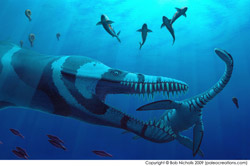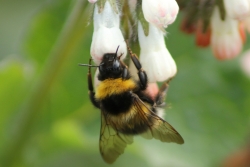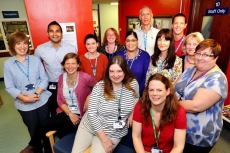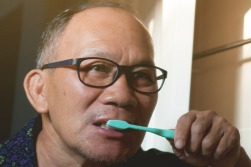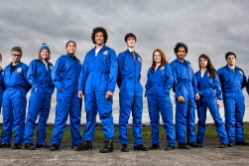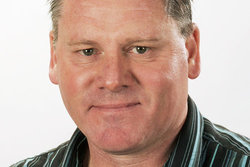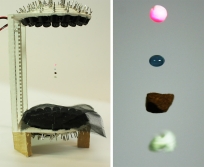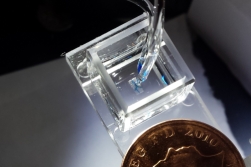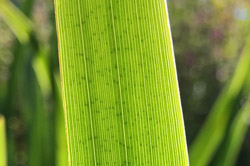SYNTHETIC | An exploration of synthetic biology through art
The University of Bristol is hosting an exhibition of the work of four artists as part of BrisSynBio's annual synthetic biology conference.
The University of Bristol is hosting an exhibition of the work of four artists as part of BrisSynBio's annual synthetic biology conference.
A new report released today (Monday, 11 September) and co-edited by Bristol academic Ann Singleton has highlighted the global scale of deaths and disappearances of people lost during migration.
The GW4 Alliance [made up of four leading research-intensive universities: Bath, Bristol, Cardiff and Exeter] has been shortlisted under the category of Technological Innovation of the Year at this year’s Times Higher Education [THE] Awards for its world-first supercomputer, Isambard.
Quantum tech firm QLM has moved from the University of Bristol into their new home at Unit DX, a recently-opened scientific innovation centre close to Bristol Temple Meads station, to continue development of a methane detector that could cut greenhouse gas emissions.
Dr David Nash, Senior Lecturer in the Department of Civil Engineering before he retired in 2015, died in June. His colleague Professor Sally Heslop offers this remembrance.
How a mother’s mental health and personality affects her child’s mental health will be investigated by University of Bristol researchers who have been awarded €1.5million from the European Research Council.
The University of Bristol is ninth in the UK and one of 12 UK institutions in the top 100 universities worldwide, according to the latest Times Higher Education (THE) World University Rankings 2018.
National Instruments together with the University of Bristol, Lund University (Sweden) and BT, were last night [Tuesday 5 September] announced the winners in the category 'Information, Data & Connectivity' at The Engineer: Collaborate to Innovate (C2I) Awards 2017, with their project 'Setting World Records in 5G Wireless Spectral Efficiency using Massive Multiple Input, Multiple Output (MIMO)'.
The University of Bristol's growing activity in renewable energy teaching and research has been strengthened by the appointment of David Quarton, a leading figure in the wind energy industry, as a Visiting Professor.
One of Bristol’s oldest and most striking heritage estates has been restored, following a huge re-vamp to reinstate its original Georgian features.
Over 16,000 visitors will be attending the University of Bristol’s latest undergraduate open day on Saturday [9 September].
Scientists from the University of Bristol have designed an artificial enzyme that functions as well as (and in some cases better than) a vital class of natural enzymes.
University of Bristol PhD student, Alfie Wearn, has beaten off stiff competition to secure a space in the national 3MT® final. The unique competition sees speed and academic clout collide as researchers battle to deliver their 80,000-word thesis in just three short minutes.
Inductosense, a University of Bristol spin-out which is developing novel ultrasonic sensors for monitoring corrosion, cracks or defects in structures has secured a funding round of £1.1million investment from a consortium of investors.
The University of Bristol invites city residents to join them around the Beacon house piano this Friday lunchtime [1 September] for choral renditions of popular songs in celebration of the world-famous Play Me, I’m Yours street piano project.
Members of the public are invited to experience community research first-hand at a special festival taking place on 14 September.
University of Bristol scientists have found that the delivery of a group of proteins involved in the information flow between the brain’s nerve cells to the synapse is much more sophisticated than previously suspected. The findings, published in Cell Reports, will help the development of therapies for conditions such as epilepsy and autism whereby neuronal communication circuits malfunction.
A group of international researchers have returned from a highly successful expedition to the Labrador Sea and coastal Greenland, led by scientists at the University of Bristol.
A new study led by academics at the Bristol Veterinary School has reviewed the literature on the use of antimicrobials (AM) in livestock practice together with the views of stakeholders. The study found that although there are some barriers to change, there is a clear awareness of the issue among the livestock sectors and a willingness to modify AM use.
A decades-old mystery of why a naturally-occurring organic crystal fluoresces blue under ultra-violet light, yet when grown under laboratory conditions fluoresces with an intense green colour, has been solved by scientists from the University of Bristol.
A new study has shed light on the swimming style of a prehistoric sea creature by creating a robot to mimic its movements.
A second phase of consultation around the University of Bristol’s plans for its new £300 million campus next to Bristol Temple Meads will be held in September.
Bees, butterflies, moths, bats and birds will take centre stage at the University of Bristol's Botanic Garden this weekend [2 and 3 September] for its annual Bee and Pollination Festival. Visitors to the Garden will have the opportunity to find out how industrious and vital these workers are and how flowers use caffeine, forms of traffic control and floral imposters to attract pollinators.
Extending the operating hours of the liaison psychiatry service at the Bristol Royal Infirmary’s (BRI) Emergency Department has led to improved care and outcomes for patients who have self-harmed, NIHR-funded research has found. Self-harm is a strong risk indicator for suicide, so getting psychiatric support for these patients has the potential to save lives.
The University of Bristol has appointed its first Special Advisor on Industrial Strategy.
New research commissioned by British Red Cross shows that over a third of people [34.1 per cent] who attend accident and emergency (A&E) departments were seeking help because they are 'worried and didn't know what to do'.
Former Senior Lecturer in Education and Modern Languages Elisabeth Lazarus has passed away. Her colleague Professor Ros Sutherland offers a remembrance.
Oral steroids should not be used for treating acute lower respiratory tract infection (or ‘chest infections’) in adults who don’t have asthma or other chronic lung disease, as they do not reduce the duration or severity of symptoms, according to a new study published in the journal JAMA [22 August].
The earliest introduction of domestic chickens and black rats from Asia to the east coast of Africa came via maritime routes between the 7th and 8th centuries AD.
Scientists at the University of Bristol are investigating how bacteria in our mouth can cause a heart problem, called infective endocarditis. Although uncommon, infective endocarditis is a serious condition that can often be fatal.
A Bristol PhD student has made the cut for a brand-new TV programme to find out who has what it takes to be an astronaut. The programme, called Astronauts Do You Have What It Takes? will air on BBC Two on Sunday [20th August] at 9pm.
Dr Christopher Sherwin, Senior Research Fellow at Bristol Veterinary School before his retirement in 2012, died on 18 July. His colleague Mike Mendl offers a tribute.
While most British children are likely to have heard of Fantastic Mr. Fox, very few adults, let alone children, may have heard of Reynard, the Dutch vulpine trickster who inspired Roald Dahl’s much-loved character.
The world-famous Play Me, I’m Yours street piano project officially gets underway in Bristol tomorrow [17 August] as 18 eye-catching instruments are rolled out across the city.
Levitation techniques are no longer confined to the laboratory thanks to University of Bristol engineers who have developed an easier way for suspending matter in mid-air by developing a 3D-printed acoustic levitator. This new technique, published in Review of Scientific Instruments, could be applied to a range of applications, including blood tests.
A team from the University of Bristol’s School of Cellular and Molecular Medicine, together with scientists at the University of Oxford, has developed a new method to 3D-print stem cells to form complex living 3D structures.
The University of Bristol has been ranked 8th in the UK and 61st in the world, according to the Academic Ranking of World Universities (ARWU) published today.
A new study, led by the University of Bristol, has shed new light on the origin, timing and habitat in which the chloroplast first evolved.
Famously described as 'the deepest problem in solid state physics' by Nobel Laureate, Philip Andersen, the glass transition, by which a liquid transforms into a solid without freezing, is shedding its mystique.
PreScribed (a life written for me) opens in Edinburgh this week and explores the alarming statistic that one in five practising GPs suffer from chronic stress and anxiety.
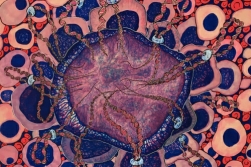


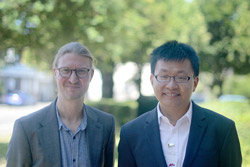


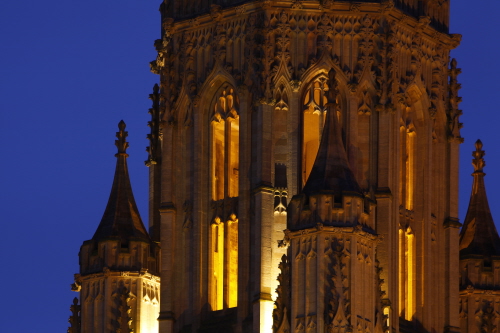

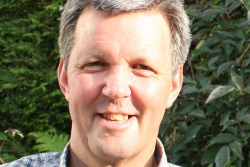
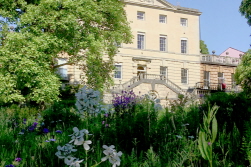
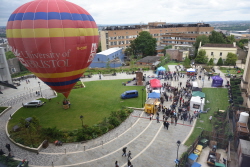
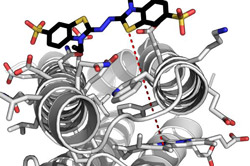

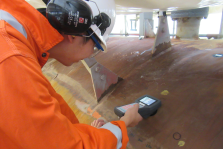


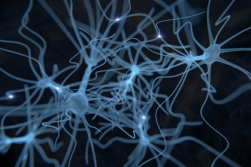
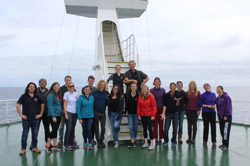
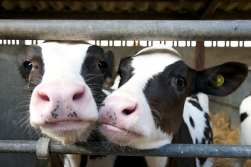
-thumb.jpg)
